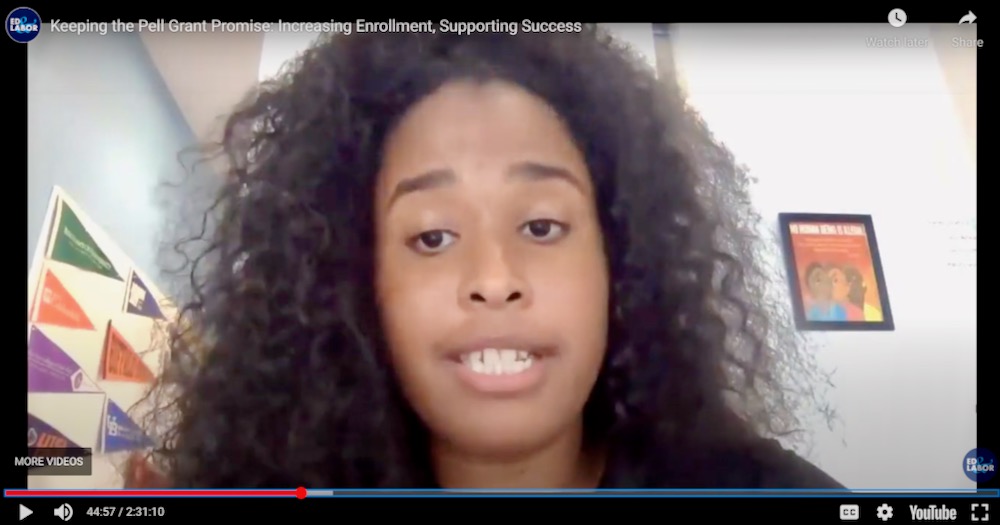
The cost of college includes way more than tuition—and the government must double its Pell Grants if it truly wants to help students complete their education, #DegreesNYC Youth Council Co-Coordinator Darleny Suriel testified to Congress in late July.
Sometimes not having subway fare is a make-or-break situation, she told the House Committee on Education and Labor. “While attending Borough of Manhattan Community College as a commuter,” she explained, “I had to buy weekly MetroCards that would cost me over $500 a semester. On days when I could not afford a MetroCard, I had no choice but to miss my class.”
Education advocates are calling on Congress to double the Pell Grant—the federal government’s main scholarship program for low-income students. The Pell Grant was launched in 1965. Ten years later, at its high-water mark, it funded up to 79 percent of the cost for an undergraduate education at a public university. Today it covers just 28 percent—and student debt is soaring into the trillions.
“Expanding the Pell Grant would help students survive so that they can thrive,” Suriel told the committee. “Almost half of the College student population in this country deals with food insecurity. The percentage of college students that are affected by the digital divide, housing insecurity, and unemployment is equally as jarring.”
Out of nearly 7 million Pell Grant recipients nationwide, Suriel was the only student invited to testify before Congress. She isn’t exactly new to the legislative hot seat; last year she appeared before New York state lawmakers. In her position as #DegreesNYC Youth Council Co-Coordinator, she writes, speaks and organizes around education equity and the importance of youth leadership having a seat in decision-making spaces. (With a mission to attain equity in education in NYC, #DegreesNYC works to ensure that systems that impact young people are accessible, inclusive, and just. Co-founded in 2016 by Goddard Riverside’s Options Center, it’s now a citywide Collective Impact initiative with a national reach.)
Still, she says, it was stressful: “It’s Congress, that’s very intimidating.” It was also “a little hectic,” she added, because she had just returned from the Dominican Republic, where she was working on a project to distribute backpacks, books and hygiene supplies at her parents’ old elementary school in El Cibao.
In the end, she says, it wasn’t as scary as she thought it would be. And she’s cautiously optimistic about a Pell Grant increase.
“I hope they understand things are changing and our policy has to reflect our reality. I feel like the fact that it’s being discussed on that level means it might happen.”
After all, as she pointed out in her testimony, everyone benefits when young people succeed.
“These students are potential CEOs, Doctors, Lawyers, Congressional leaders, and even Presidents who just need their national leaders to believe in them enough to invest in them. We are the future of this country’s economy and workforce. Doubling the Pell Grant would not only be an investment in the education of young college students, but it would also be an investment in the future of this country.”
Watch the hearing and download transcripts of the testimony here: https://edlabor.house.gov/hearings/keeping-the-pell-grant-promise-increasing-enrollment-supporting-success